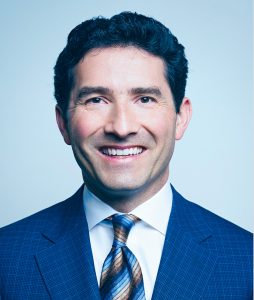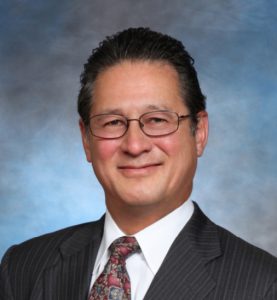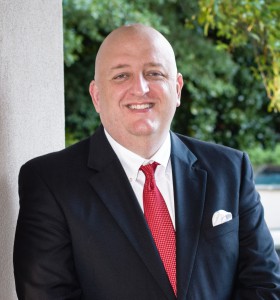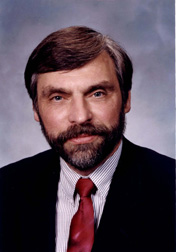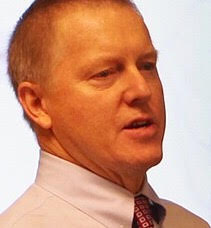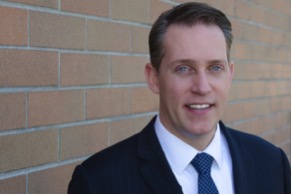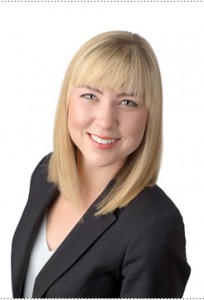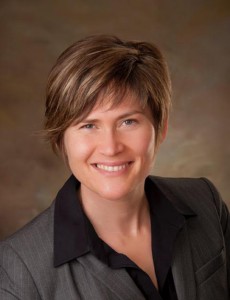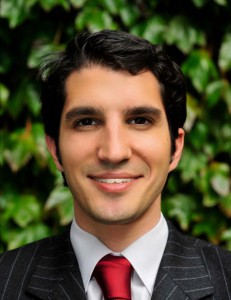 [the_ad_placement id=”right-side”]
[the_ad_placement id=”right-side”]
( © 2012 Prov. of BC https://creativecommons.org/licenses/by-nc-nd/2.0/)
♫ I can have it all
Now I’m dancing for my life…♫
– Music and Lyrics by Giorgio Moroder, Lyrics by Keith Forsey and Irene Cara; performed by Cara.
When it comes to going beyond private practice, a few law graduates have taken things perhaps just a bit further than most.
Take Mark Ciavarella. He was a President Judge of the Luzerne County Court of Common Pleas in Pennsylvania. He pled guilty in 2009 to “federal charges of honest services fraud, wire fraud and tax evasion in connection with receiving $2.6 million in kickbacks from Robert Powell (himself an attorney) and Robert Mericle, the co-owner and builder respectively, of two private, for-profit juvenile facilities of PA Child Care” (per Wikipedia). How did he earn these kickbacks, you ask? By sentencing children to stays in juvenile detention for crimes such as “mocking a principal on Myspace, trespassing in a vacant building, and shoplifting DVDs from Walmart.”
Then there is Minnesota attorney Thomas P. Lowe. Now Thomas isn’t the first lawyer to have sex with his client (and almost certainly not the last). He distinguished himself by taking things one step further and billing his client for his time having sex, characterizing these activities as “drafting memos” and “meetings” (per Business Insider). This earned him a professional misconduct citation, among other things.
Stealing from clients is bad; stealing from orphaned children is in a class all its own. Yet that is what attorney John Milton Merritt did. He plead guilty to 12 counts of using forged court orders to defraud clients. Among those clients were four orphaned girls whose parents were killed in a 2002 car crash and a boy injured in a 2005 car accident. In total, Mr. Merritt stole just under $450,000 from the children and $1.7 million in total (per Huffpost).
However, not many lawyers make such an impact as Vladimir Ilyich Ulyanov, better known by his alias, Lenin. He played a leading role in the October Revolution, in which the Bolsheviks overthrew Russia and the Tsars (per Wikipedia).
He served as head of government of Soviet Russia from 1917 to 1924 and of the Soviet Union from 1922 to 1924. Under his administration, Russia and then the wider Soviet Union became a one-party communist state governed by the Russian Communist Party.
Genocide scholar Adam Jones claims that “there is very little in the record of human experience to match the violence unleashed between 1917, when the Bolsheviks took power, and 1953, when Joseph Stalin died and the Soviet Union moved to adopt a more restrained and largely non-murderous domestic policy” (per Wikipedia). Robert Conquest, in his book, estimates the communist leaders of the Soviet Union were responsible for no fewer than 15 million deaths.
On a different scale, take lawyer Brett Hartley of Florida who was disbarred by The Florida Supreme Court. What did he do? He used his lawyer trust account as a business operating account for an adult entertainment business in Jacksonville, Florida called Flash Dancers. He also abandoned his practice, misappropriated client funds, failed to pay back $255,000 from his father in law after two payments, and had a substance abuse problem.
This all goes to show that if you throw the ethics book out the window, you can seemingly have it all, provided you don’t mind — dancing for your life.
Resources to assist with personal, drug, alcohol and other issues
Since many lawyers who get into ethical troubles do so as a result of alcohol or drug dependence, mental health issues, stress, depression, parenting and elder care issues and other challenging life situations, there are a number of resources available to assist lawyers and in many cases, their staff and families deal with these issues before they become overwhelming. Here is an overview of some of the resources available in BC. There will be similar programs available in other provinces and states – check with your bar association, practice management advisor or ethics counsel.
Lawyers Assistance Program (“LAP”) (lapbc.com) LAPBC is an independent organization of members of the BC legal community (lawyers, judges, families and support staff) for members of the legal community.
LAP provides peer support, resources and referral services to help people deal with personal problems — including alcohol and drug dependence, mental health issues, stress and anxiety, relationships issues, including familial issues, professional concerns, depression and other issues. They are available 24/7. Call 604-685-2171 or 1-888-685-2171 or email info@lapbc.com.
Mood Disorders Society of Canada (mdsc.ca)
Mental health resources.
Law Society of BC
LifeWorks Canada The Law Society funds LifeWorks Canada’s personal counselling and referral services. Services are confidential and available at no cost to individual BC lawyers, articled students and their immediate families. LifeWorks can “help with life’s questions, issues and concerns — handling stress, maintaining relationships, challenges at work, parenting and childcare, managing money, caring for an older relative or health issues.”
Contact LifeWorks 24/7:
- Calling the toll-free number: 1-888-307-0590 for a confidential in-person call.
- Log in to login.lifeworks.com to learn more about the services Lifeworks provides, including website materials and access to a confidential online chat or in-person call:
- Username: lawsocietybc
- Password: healthy
- Download the free app on Android or IOS — simply search for “Lifeworks.” Once downloaded, open the app, click on “log in” and enter your Username and Password: lawsocietybc/healthy
Maternity Leave Benefits Program The LSBC offers a maternity leave benefit loan program to assist self-employed women lawyers who do not have access to maternity and parental financial benefits other than government programs remain in practice. To be eligible for the loan, you have to meet all of the requirements listed here. The program provides a loan of $2,000 per month for four months to help with overhead costs during a maternity leave.
Equity Ombudsman Claire Marchant is the Equity Ombudsman at the LSBC. She can assist with resolving concerns about discrimination and discriminatory harassment. Lawyers, articled students, law students and support staff of legal employers are all free to contact the Equity Ombudsperson. The service is voluntary, confidential and free to participants. Contact Claire: equity@lsbc.org or call 604-605-5303.
Drug and Alcohol Resources
Watching a spouse, child or other family member deal with drug, alcohol or mental health issues can present you with one of the most challenging life situations you can ever face. There are many resources available to assist you in this journey.
HealthLinkBC lists many resources, including how to reach out for help for: suicide, mental health, kids help, alcohol and drug resources and other information. It also lists resources such as how to talk to teens, how to talk to adult children and what your health authority can offer by way of assistance. healthlinkbc.ca/substance-use/parenting-articles.
Alcohol and Drug Information Referral Service It’s free, confidential, and available 24/7. Call 1-800-663-1441 or 604-660-9382 in the Lower Mainland.
Gambling Support Line 1-888-795-6111
Depression and Mental Health Resources (cmha.bc.ca)
HeretoHelp.bc.ca lists a number of resources available to help deal with depression, mood disorders and more.
There are many other resources available in the province, some of which are specific to communities. For example, call or text 211 to access free information and referral to a full range of community, social, and government services, 24/7 in the Metro Vancouver, Fraser Valley, Squamish-Lillooet and Sunshine Coast Regional Districts.
(originally published in PracticeTalk and TechTips in the Canadian Bar Association’s BarTalk magazine:
https://www.cbabc.org/BarTalk/Articles/2020/April/Columns/Going-Where-Few-Have-Gone-Before
https://www.cbabc.org/BarTalk/Articles/2020/April/Columns/There-are-many-resources-available-to-assist-lawye)
© 2022 David J. Bilinsky
[the_ad_placement id=”right-side”]
♫ But there never seems to be enough time
To do the things you want to do,
once you find them… ♫
— Music, Lyrics and recorded by Jim Croce.
What is the one thing we all own in equal measure, every day? The answer is simply enough — Time. We all take our daily allotment and spend it on work, pleasure, things we have to do, things we want to do, things we wished we didn’t have to do, things that waste time, and more. How we use it can make us happy, it can make us sad, it can bring about positive change to the world, it can bring a smile to someone’s face, or sadness to another. Two things we can’t do with it is bank it or get more of it. Accordingly, let’s spend a little time to explore how to best manage our time.
The first step is to write down your goals. These are not just work and career goals but life goals as well. You may want to make partner or launch your own firm. You may wish to do public advocacy work or learn to play a musical instrument or write a play. You may wish to ski more often, run a marathon, or travel. The point is that goals unset are goals unmet. What does success mean to you? Rank your life’s goals, research what has to be done to achieve them and then develop a plan that will take you to your life’s goals.
Next, write out the tasks that will take you toward your life goals and those that others have set for you. Each task should take you closer to a goal.
Remember that tasks should be S.M.A.R.T.: Specific, Measurable, Attainable, Relevant, and Time Based.
- Specific: Goals should be tightly focused and clear so you can foresee the steps that need to be taken for goal achievement.
- Measurable: What gets measured gets done. Have milestones set that allow you to judge your progress toward goal achievement.
- Attainable: Do you have what you need to achieve your goal? Or do you have to gain experience, education, skills, or credentials to do this? Perhaps you need to set sub-goals to take you toward your big goal.
- Relevant: Do your tasks bring you closer to your life’s goals?
- Time Based: Set a deadline for each task to hold yourself accountable.
Now, sort out your tasks into four categories:
- Important and urgent: +I+U
- Important but not urgent: +I~U
- Urgent but not important: +U~I
- Not urgent and not important: ~U~I
Sorting your tasks starts the process of prioritization:
- +I+U: Do these tasks right away.
- +I~U: These are your long-term goals. Set aside time for these in your day!
- +U~I: Delegate these tasks if possible. If not, schedule them lower in priority.
- ~U~I: Set these aside to do later, if ever (typically time wasters).
Create a “To Do” list from your priorities and keep it on your desk. This allows you to keep your priorities in front of you at all times. Organize your desk and remove clutter — those are usually distractions.
Develop good time management skills and habits. Good time management skills can be learned and nurtured over time and will only increase your value to your firm, to your family, and of course, to yourself. They will allow you to find time to do the things you enjoy.
Set a time budget and allocate a set time to each task and then block off time in your daily calendar based on your tasks. Once a task time is up — evaluate what has to be done to complete the task, create a new To-Do, sort your To-Dos again, and start the next task.
Cut out all time-wasting activities. Reward yourself for task accomplishment with a small break and reward. Reinforce how good time management works for you and clears your To-Do list as you work through your day.
Remember that procrastination is the enemy of goal achievement. Procrastination can be a sign of a fear of success, a fear of failure, that you don’t deserve your life’s goal or find a task overwhelming. When the urge to procrastinate comes on, counter it by immediately working a bit on your goal and a task and experience the relief in having started. Break down a big task into smaller portions and conquer each in turn and watch your progress.
Plan to deal with obstacles and interruptions. If someone walks into your office and looks to be staying, grab your coffee cup and head off to the coffee machine. They can talk while you get a coffee and — you got them out of your office!
Resolve to stop multitasking. It may feel like you are accomplishing a lot, but that doesn’t stand up. According to bit.ly/bt0422pt-1:
“Studies now show that multitasking can actually damage the brain. As the brain can primarily focus on one thing at a time, keeping track of multiple things at once or accepting multiple streams of information can lead to decreased productivity and distraction from the task at hand.”
Consistently work on your Important but not Urgent: +I~U tasks. These are the ones that will change your life’s path as you desire it to be. Plan your tasks to gradually move yourself into the area(s) of practice in which you desire to be. Measure your progress to stay motivated!
Set a daily billable time goal and track your progress to it throughout your day. You owe it to your family, your firm, and not the least of all, to yourself to grow into being a more effective and responsible lawyer each and every day. Hold yourself accountable for your progress and reward yourself for achieving your daily billable time goal.
Track all your time — billable and non-billable. There are many reasons for doing this. By seeing where you are spending your time, you increase accountability to yourself and to others. Tracking all your time increases your focus on your +I+U tasks. It exposes your time wasters, time sinks, and traps. It prevents project creep, by keeping tasks within their allocated time budget. You enhance your personal bottom line, which in turn benefits yourself and your practice. Most importantly, it will gradually transform you into a better lawyer.
Prevent leaks in your time boat. There are many possible ways to leak billable time. The first is the failure to accurately capture time. Up to 40% of your billable time can be lost if not recorded contemporaneously with task completion. A second is to write off billable time at the time of billing. A third is to reduce an invoice to receive payment. A final one is to write off an entire bill as uncollectible. Plug the leaks in your financial boat by using your time to achieve effective client objectives. Remember client satisfaction ulti-mately drives collections.
Having an accurate billable and non-billable time record allows you to perform analytics on your time and finances. A “Key Statistics” report will show you the financial health of your practice at a glance with such indicators as: Effective Hourly Rate, Work In Progress, Billings, Billing Turnover, your Billing Realization, your Collection Realization Rate, and many more.
Accurate time records will also allow you to forecast your future cash flows and track them against your cash flow needs, providing you with feedback on your financial health and providing you with needed information for cash flow management.
Lastly, pass on your hard-earned knowledge. Teach younger lawyers your time management skills. Act as a time mentor and help grow the next generation of associates into lawyers and partners your firm will value.
Good time management skills can help us all make the most of this most precious of resources, and thereby find the time to do the things we want to do, once we find them.
(c) 2022 David J. Bilinsky
(originally published in PracticeTalk in the Canadian Bar Association’s BarTalk magazine: https://bit.ly/3qSFo04)
♫ And if it’s bad
Don’t let it get you down, you can take it..
Hold your head up, oh hold your head high… ♫
Music and Lyrics by Junod Etienne and Sean Price, recorded by Steppenwolf.

(Image by Gerd Altmann from Pixabay).
When one thinks of toxic environments, one doesn’t tend to think of law offices as falling into that category. Yet I get calls from partners, associates and staff alike who are having to cope with working in such situations. In some offices matters are dire; the stress of working in these environments are taking their toll on the person’s health and well-being, on their careers and certainly on their home life as well as they can’t help but carry the effects home. After a time some of these people reach the breaking point and leave. Others are not so fortunate and are looking for tips on how to cope with being in such a situation.
The first thing to remember if you are caught in such an office is that you cannot control other people’s behaviour; you can only control how you respond. Passive-aggressiveness, destructive and negative comments, conniving politics, terrible leadership, partners that are insensitive to personal boundaries or worse are not things that are a reflection of who you are; you are simply caught in the toxic vortex. So here is a collection of tips for coping in a toxic environment:
- You need to stay positive and upbeat. The person you are most able to influence is yourself so don’t allow the toxicity to drag you down.
- Learn from the experience. Every bad situation allows you to grow as an individual and take home lessons – even if those are about things that you would never repeat. Learn how to apply The Golden Rule – ie how to treat others as you yourself would wish to be treated – as it is a powerful guide to help you grow when you are in such a situation.
- Do the best that you can do. You want to preserve your integrity and your good name. It is no surprise that word gets around in the legal community and being able to cope in a bad environment only enhances your reputation, your work ethic and your character.
- Create a ‘thank you’ file. While it may perhaps be the thinnest file in the office, a collection of letters and cards that endorse the value of your work could be the most valuable file in the office. It will grow over time and leafing through the physical embodiment of good wishes and thanks is a personal validation of your own self-worth and assistance to others.
- Get a supportive network outside of the office. Having someone to talk to about the situation certainly helps and their advice and support can get you through some dark days.
Continue to search for a better workplace while keeping your shoulders squared and your spirit up. Keep looking for a more positive situation. Remember that no matter what, continue to hold your head high.
What online resources are available if you find yourself in a toxic environment? Here are a selection:
Workplace Bullying Institute “WBI is the first and only U.S. organization dedicated to the eradication of workplace bullying that combines help for individuals, research, books, public education, training for professionals-unions-employers, legislative advocacy, and consulting solutions for organizations.” It was founded by Drs. Gary & Ruth Namie. They state:
“Workplace Bullying is repeated, health-harming mistreatment of one or more persons (the targets) by one or more perpetrators that takes one or more of the following forms:
- Verbal abuse
- Offensive conduct/behaviors (including nonverbal) which are threatening, humiliating, or intimidating…”
This site has wonderful resources for people caught in these situations including an ‘action plan’ which includes the great piece of advice: “Have your escape route planned…
The World of Psychology Web site in the article “When Your Workplace is Toxic” has this bit of advice regarding having a personal renewal program in place. They state:
“We must have a self-care protocol in place that we can employ as a daily guide, while being alert to rationalizations and excuses for not doing it. Not to have such a personal renewal program may court disaster for both our personal and professional lives. It is also, at its core, an act of profound disrespect for the gift of life we have been give.”
The Future of CIO website: in an article entitled “Five Characteristics of a Toxic Workplace” states:
“One of the most toxic characteristics of workplace, is that of management making decisions without the consideration of the people.”
It goes on and states:
“A lack of real support for employees can be an issue: Who do you go to if there’s a problem with your boss or someone in a senior role? Often, there’s an ‘elephant in the room’ that no-one wants to address until the problem begins to spiral. Unhelpful behavior that leads to general gossip, can very quickly create a toxic environment.”
If you are a leader in a firm that is starting to show signs of toxicity, this website has another good article that speaks about a 4 step methodology for analyzing, assessing, and redesigning the culture of an organization in a consistent manner: Corporate Culture Re-inventing: Is Hybrid Model the Best?
Lastly, when it comes time to craft your exit strategy from the toxic workplace, Forbes Magazine has an article online entitled “Five Critical Steps to Finding a Job Fast!” It lists such things to consider as fine tuning your LinkedIn profile as well as checking any publicly available information about yourself that may turn up on a Google search.
(Originally published by the Canadian Bar Association in their publication Bartalk in the columns: PracticeTalk and Dave’s Tech Tips in February 2014.)
♫ You raise me up, so I can stand on mountains
You raise me up to walk on stormy seas
I am strong when I am on your shoulders
You raise me up to more than I can be…♫
Music and Lyrics by B. Graham, R. Lovland, recorded by Martin Hurkens.
What does it take to practice law successfully? That list of abilities would be as diverse as the spectrum of lawyers out in practice today. Many of us would wish for a photographic memory combined with an intellect that allows that large amount of data to be assimilated and processed. That is exactly what Haley Moss, a lawyer in Florida, does. Joseph Zumpano, the co-founder of the law firm Zumpano Patricios, that employs Haley Moss, said he believes Moss is the first “openly autistic” lawyer to be admitted to the Florida Bar. Moss gives his business an edge in complex areas of law, Zumpano says, because of her “extraordinary” capacity for analysis and information processing .
Of course, not every person with autism possesses a photographic memory or has a capacity for deep analysis. People with autism have a range of abilities and challenges. Employers such as SAP, JPMorgan Chase, EY, Microsoft and others recognize this diversity and are part of the Autism at Work program, which seeks to take this range of abilities by employing over 160 colleagues in 13 countries.(https://www.sap.com/corporate/en/company/diversity/differently-abled.html)
According to StatsCan, 22% of Canadians have at least one disability, which represents 6.2 million people (2017). That is a huge pool of people that could play a role for many employers, law firms included, from being lawyers to acting in other careers.
The ABA Journal continues: “I think people are becoming more willing to be out of the closet because some of the stigma is gone. It’s not just a bunch of people who are sitting in corners banging their heads; we are fully functioning,” says Michael Gilberg, a special education and disability rights attorney in New York, who was diagnosed with Asperger’s syndrome when he was 18. He graduated from Elisabeth Haub School of Law at Pace University in 2007 and is admitted to practice in New York and Connecticut.
The goal would be for all individuals to be recognized for their strengths and abilities that they bring to a workplace, not just for how they are challenged.
“I want to see us being meaningfully included and have opportunities that are aligned with our skills,” Haley Moss stated, “as well as what we’re capable of.”
Employers, particularly law firms, who have a deep role to play by advocating for the rights of those with differing abilities and challenges, can also play a leading role in recognizing and employing individuals who have amazing attributes and strengths to build meaningful careers and help raise them up to be more than they could be…
The Journal of Vocational Rehabilitation in 2005 reported on a study that found that 92% of consumers felt more favourable toward those employers that hire individuals with disabilities. Furthermore, the study showed that people also had strong positive beliefs about the value and benefits of hiring people with disabilities, with 87% specifically agreeing that they would prefer to give their business to companies that hire individuals with disabilities.
AtWork outlines further benefits of hiring people with disabilities. These include:
Improved productivity: Effective job matching fits the employee’s abilities to the employers’ needs. The right person in the right job makes everyone more productive.
Reduced turnover: Having trouble finding good employees? Many repetitive or entry-level positions are well suited to people with disabilities.
Improved morale: People with disabilities want to work and contribute. They are motivated and reliable coworkers who add value to any team. Their enthusiasm and positive attitudes are contagious – and great for morale.
Higher retention: People with disabilities are reliable and dependable workers, with some of the highest rates of retention of any employee group.
Low investment, high return: There is no additional cost to you, other than the employee’s wages.
Win-win situation for all: Hiring people with disabilities benefits the workers, the community and your company.
What resources are out there to assist you in employing people with disabilities?
CASE: The Canadian Association for Supported Employment, established in 1999, was initially an informal network of service providers and stakeholders committed to the full participation of persons with disabilities in the Canadian labour force. CASE is a national association of community-based service providers and stakeholders working towards the Employment Inclusion of people with disabilities. This association strives to promote full citizenship and personal capacity for persons with disabilities through the facilitation of increased labour market participation and outcomes. Through such workforce participation, CASE also promotes social inclusion for Canadians with disabilities. Joining CASE signifies your organization’s role in being part of the national voice for employment inclusion.
CASE lists a number of supportive organizations that can assist in the role of employment inclusion in BC:
The Provincial Networking Group Inc.
There are real and tangible benefits to hiring those people with differing abilities and challenges. As lawyers we are justly concerned with rights and freedoms; I trust we are equally concerned with opportunities being equally available to all.
(originally published in BarTalk, a publication of the BC Branch of the Canadian Bar Association.)
♫ Nothing takes the past away
Like the future
Nothing makes the darkness go
Like the light…♫
Lyrics and Music by: M. Ciccone, M. L. Ciccone, P. Leonard, recorded by: Madonna
After a break of a couple of years due to health concerns, we are resuming the New Year’s Legal Predictions Blog Post! We have reached out to our friends & colleagues for their insights into the future of the legal world. This year we are grouping everyone’s thoughts under 16 categories from “Artificial Intelligence in the law firm environment” to “Something you will be working on or thinking about in 2019.”
I am happy to present their thoughts and trust that they will be interesting, humorous and thought-provoking. I hope our dear readers will share their thoughts in the comments area!
1. Artificial Intelligence in the law firm environment
Andrew Clark
• AI is already seeing hype and uptake this year and will continue into next year. As decision-makers realize the hype is gathering momentum, the focus will shift to the risks associated with AI – which will delay actual implementation.
Eugene Meehan QC:
• Will AI and their juridical spawn replicate or replace us? Need to watch Blade Runner again, but only Ridley Scott’s Director’s Cut version – the one with the not-so-ambiguous ending.
• Service, filings, production, billings, and even reception will become increasingly automated. For some law firms. Not all.
Stewart Levine:
• Perfectly suited…perhaps better than many attorneys.
Andre Coetzee:
• Artificial Intelligence is no longer a buzz word and firms will leverage AI services to assist with mundane tasks so as to enhance productivity, save time, increase accuracy and allow the lawyer to focus on strategic work. Trust, however will be key in adoption of AI services. A few examples of the application of AI:
o automate legal searches of case law;
o proof reading of contracts and legal documentation;
o document analysis.
Nikki Black:
• AI software development will continue to increase in 2019 and we’ll see some really creative tools come to light that will help reduce the mundane aspects of practicing law, allowing law firms to streamline their workflows so that lawyers can focus on more high level, complex analytical issues. So keep an eye on AI advancements in the legal tech space – there’s sure to be a lot of interesting developments in 2019!
David J. Bilinsky
• AI will be applied for success in cases where the data sets (contracts, discovery, case law) are better suited to automated processes either due to the prohibitive costs of traditional search, the need for speed of search results or where substantive increases in accuracy favour such processes. The challenge for small to medium law firms will be to lever this technology as the application of AI currently favour the resources of a larger law firm.
2. Alternate legal service providers
Bill Lipner:
• Startup – both “public” and “in-house incubations” – will begin to spring up like mushrooms in the rainy season, as AI enters the early-market stage of development. Point-applications will continue to chip away at repetitive data-intensive applications within law firms, nudging the efficiency-curve upward.
Stewart Levine:
• Growing and rightly so…with AI great for delivery and cost to consumer.
Bill Lipner:
• You’ll see a quantum leap as legal service consumers continues to seek faster-better-cheaper services…
David J. Bilinsky:
• There are many factors that can be resisted, but battling against economics is one where the battle is ultimately futile. The demands for more affordable access to justice will continue to get louder and the movements calling for change will ultimately be successful. This will translate into the loss of exclusivity for lawyers as consumers demand more affordable justice in such areas as family law, residential tenancies, low value claims and others. Non-lawyer alternative service providers will be licensed to provide legal services in these areas, resulting in the “Wall of Jericho” that protects lawyers to come a’tumbling down.
3. Alternate business structures
Eugene Meehan QC:
• Advanced digital legal assistant technologies will begin to displace the need for some office staff at some firms, in some areas of law, but again, not all. Some areas of practice are necessarily labour intensive, and benefit from higher than average staff ratios. At Supreme Advocacy our clients benefit significantly from having our lawyers as efficient, fast, and productive as possible – our staff to lawyer ratio is 2:1. i.e. 2 staff for 1 lawyer, not the other way around.
Stewart Levine:
• Growing and rightly so…with AI great for delivery and cost to consumer.
Bill Lipner:
• Not here in the good old USA.
David J. Bilinsky:
• ABS – Alternative Business Structures – will be approved shortly after governments approve new non-lawyer legal service providers (as noted above) to provide lower-cost A2J(Access to Justice) services in addition to lawyers.
4. Law school education
Eugene Meehan QC:
• Ever since Law Schools abolished obligatory courses (i.e. first year plus Civil Pro is all you need to take in Ontario) ‘law school education’ is a potential oxymoron. You can graduate while knowing nothing of Tax, Family, Evidence, Trusts, Real Estate, Employment Law, Creditors’ Remedies, Corporate, Insurance, Municipal Law, Statutory Interpretation. Would you go to a physician that skipped cardiology, pediatrics, or infectious diseases? Sure you can say I’m stuck in medieval times – but so are law students that don’t take what they should.
• Law schools should change their focus from simply providing a legal education to creating lawyers. Dentists are good dentists on graduation, good-to-go, because they have a structured not-much-choice dental school. If a dental student goes to dental school and says I don’t wanna learn how to pull teeth, how do you think that’s gonna go?
• Lakehead has it right. They so prepare their students for the practice of law they are (in Ontario) exempted from articling. That will be the future.
Stewart Levine:
• Don’t think a move to two years will happen anytime soon but more clinical education.
Bill Lipner:
• Will legal-tech finally become a serious course of study? Ethics issues are pushing us in this direction.
David J. Bilinsky:
• Law Firms will be a major, but not the exclusive, factor finally calling for law schools to produce graduates that are trained to practice law rather than research it.
5. Post call legal training
Ajit Roopnarine
• 2019 will see a wider array of CPD courses and programs with increasing emphasis on sensitivity and unconscious biases in the workplace. Ethics-based discourse will take shape around equality, diversity and inclusion. Ultimately, heightened awareness will culminate in law firms updating or introducing internal workplace policies on topics including harassment, diversity and cannabis.
David J. Bilinsky
• Eventually lawyers will lose the right to self-regulation as governments respond to the demand for greater access to justice. With the loss of self-regulation will come the demand by governments regulating lawyers and the public that lawyers periodically demonstrate competence in certain areas prior to being allowed to practice. This will necessitate the need for CLE courses to incorporate exams to indicate actual competence in the area of study.
6. Blockchain and smart contracts
Sharon Nelson and John Simek:
• Bitcoin became a household name over the last year as front-page news reports tracked its meteoric rise and analysts speculated whether the “Bitcoin bubble” was about to burst. The recent roller-coaster ride in bitcoin value, peaking at an all-time high of just under $20,000 per bitcoin, demonstrates that digital currencies have real-world value. Unsurprisingly, the financial and legal sectors are paying close attention because cryptocurrencies now are replacing some bank functions.
• The advent of Bitcoin and the blockchain technology that powers it heralds a new period of disruption — and opportunity — for the legal profession. Lawyers will need to become familiar with these technologies work in order to remain competitive as the practice of law continues to evolve. We have seen great strides in the use of smart contracts based on blockchain this year and that trend will certainly continue.
Andrew Clark
• Blockchain is already in progress in BC – with corporate registries. It will continue – not just with contracts – but with evidence management.
Stewart Levine:
• Happening.
Bill Lipner:
• Sure: they’ll become a real thing, but so will legal services surrounding the way smart contracts function. This is just one of several new legal-services categories (AI is another). Things always go wrong with tech…
David J. Bilinsky:
• Blockchain, virtual currencies, smart contracts and AI will be four major disruptive technologies forcing change on the legal profession. Education, understanding, adaptation and assimilation will be essential to be able to continue to practice in areas touched by these technologies.
7. Legal service regulation
David J. Bilinsky:
• As noted above, as a consequence of lawyers opposing the increased calls for alternative and affordable access to justice solutions, the legal profession will be facing the loss of self-regulation in the short-term. The long-term consequences of this will be governments approving new non-lawyer service providers and a consequential new legal services regulation model. Once self-regulation is lost in one jurisdiction, the dominos will start falling in other jurisdictions and this will result in a wave of change in how lawyers operate.
8. Practice management
Stewart Levine:
• PM movement continues.
Bill Lipner:
• AI will lend a BIG hand here… all the big folks will be announcing AI-Assisted PM solutions..
Ajit Roopnarine
• 2019 will see small and small-to-medium law firms spending big on cybersecurity measures. As the trend toward work from home continues in 2019, the risk of being compromised will increase. Management will respond by implementing more cybersecurity layers for employees accessing firm servers and databases at distance. The cost of enhanced defense systems will challenge the smaller firm’s bottom line, but will provide much needed peace of mind.
Thomas. L. Spraggs:
• Over the last decade, cloud computing has become increasingly important in day-to-day activities. The cost of this transaction has been to trade significant amounts of personal privacy. In 2019, mainly in part through the reporting of data breaches, personal information use and data security will continue to be a hot topic. In reality, the bargain will continue to be too seductive for most users. People continue to trade their privacy for the convenience of free and low cost and ubiquitous access to the Internet and services. Lawyers who have wisely used these products to increase efficiency will have new dedicated legal products to choose from. From highly automated services delivery platforms to personal client portals (good riddance email) and compelling A.I. tools, 2019 is looking like the year that technology is finally becoming intuitive and relevant for lawyers who want to practice their craft in a responsible technology-enabled way. I predict 2019 will mark the year where this finally begins.
David J. Bilinsky:
In Canada, there will be increased demand for a ‘one-stop’ solution that combines integrated full legal and general accounting with practice management that is affordable, scalable and in the Cloud.
9. Legal technology
Brian Mauch:
• My prediction is now that hosted email services like Microsoft’s Office 365 are available in Canada, and are reliable, secure and inexpensive, I don’t expect many law firms of any size to continue to maintain on-premise email servers. This will be a radical switch for firms who are more comfortable keeping their email servers in their office, but they will appreciate it the first time that power or internet issues take their office off-line, and they find that they’re still able to send and receive email on their smartphones. It will also be a radical switch for technology professionals who have made a living out of maintaining on-premise email servers, but everyone will need to adapt to the new reality of cloud computing, which is finally becoming mainstream.
Michele Lange:
• The next era of communication is upon us. Legal teams are used to fast-paced, always-on communications, no matter in the office, at home or on a client site. It’s the culture of the practice of law. Furthermore, legal professionals, for the most part, live in their email because of the need for access to information all the time. Finding the next generation of communication platforms that meet these demands, while protecting security and privacy, is a significant challenge.
• In 2019, legal collaboration tools will take root as a new communication channel in law firms and corporate legal departments. These platforms are built around team messaging and represent a convergence of forces to get legal teams interacting in a fluid manner with chat, supplemented with videoconferencing and document and screen sharing.
• Collaboration platforms specific to the legal industry make this technology no longer a nice-to-have, but rather an essential tool which enables law firms and corporate legal departments to get more done in less time, contributing to the bottom line while increasing employee and client satisfaction.
Nikki Black:
• In 2019, legal cloud computing software will continue to be adopted at a record pace, acquisitions in the legal tech space will occur at at a similar rate, and artificial intelligence software will show incredible promise as it comes of age.
• For starters, cloud computing software use by law firms will continue to increase. For most firms, the focus has already shifted from whether they should use it to when and how they should use it. This is occurring, in part, because some well known legacy software programs that are premise-based are being phased out and moved into the cloud. The end result is that cloud-based options abound for, among other things, billing and law practice management software, and thus the challenge for many law firms in 2019 will be how to choose the right software tools to fit their unique needs.
• Another trend to keep on eye on will be legal tech acquisitions and mergers. In 2018 there were a record-breaking number of acquisitions and mergers in the legal technology space and that trend will continue into the coming year. Because competition is fierce, new startup companies often struggle to stay afloat. Funding has been scarce compared to prior years, leading to acquisitions as a means to an end for some companies. Also of note – more established legal cloud software companies, such as those in the law practice management space, will continue to grow their market share since they’ve already established a foothold and as a result have gained significant momentum. But don’t forget about the well known larger technology companies such as LexisNexis, Thomson Reuters, and Bloomberg Law either. All three show great promise, in part due to the large amounts of data owned and the ways that they’re putting that data to use. Between some interesting and strategic acquisitions in recent years and lots of new product development, you’re going to see increased product roll-outs from these companies that have lots of potential, especially in their use of AI tools to harness and make sense of all that data.
Stewart Levine:
• Perfectly suited…perhaps better than many attorneys.
Bill Lipner:
• Legal-Tech will become a more and more important differentiator among firms. Both what they use – and what THEY CREATE.
Andre Coetzee:
• To remain competitive, flexibility and agility are becoming increasingly important for firms. Those firms who have not adopted cloud services will do so as to ensure they remain nimble and competitive.
• We are literally swimming in data and hence leveraging Business Intelligence tools to access and depict key information visually, will lead to better decision making within firms.
• The adoption of software that allows for collaboration between staff, clients, co-council etc. is going to increase and will enhance productivity and efficiency. Lawyers and staff are able to use the collaboration software to communicate with each other at the office, at a client site, working from home or in different geographic regions.
Thomas. L. Spraggs:
• Technology just keeps getting better. Remember the days where learning software was a big thing. Now, software must be intuitive or face immediate failure. The legal community has been responsibly slow to adopt new technologies. Responsibility to fundamental principles of procedural fairness, confidentiality, and truth-seeking underpin the tensions that the ever-increasing technology landscape may encroach. 2019 may mark the year where technology begins to finally align with legal principles and technology as they become further integrated.
David J. Bilinsky:
• The New Yorker Magazine, Nov. 12, 2018 edition, published an article entitled: The Upgrade – Why doctors hate their computers. Atul Gawande states:
“Something’s gone terribly wrong. Doctors are among the most technology-avid people in society; computerization had simplified tasks in many industries. Yet somehow we’ve reached a point where people in the medical profession actively, viscerally, volubly hate their computers.”
• The issue seems to be that in moving from paper files (where doctors could write as much or as little as they wished), to computer-driven systems that span all functions across a hospital has meant that doctors must complete many if not most of the fields in the systems used to store patient records. This is seen as a time drag on most doctors – but the benefits of so doing are shared by all those working within the health care provider – from nurses to physios to pharmacists.
• The same issue exists in law firms; lawyers resent the need to record all or most of the information called for in a robust firm-wide practice management system; they don’t fully realize or appreciate the benefits to the firm as a whole in so doing.
• The doctor’s solution: moving to scribes who sit with the doctor and fill in the computerized forms with instructions from the doctor while the doctor treats the patient. I believe that lawyers could benefit from the same solution: go back to secretaries whose function is to enter all information in the practice management system (including detailed notes of all meetings, phone calls, billable time, tasks remaining and such) in order that the firm overall can realize the full benefit of the practice management system.
10. Online justice/online dispute resolution/access to justice
Sharon Nelson and John Simek:
• In August 2018, the American Bar Association released a report titled, “Access to Justice Commissions: Increasing Effectiveness Through Adequate Staffing and Funding,” available at https://www.americanbar.org/content/dam/aba/administrative/legal_aid_indigent_defendants/ls_sclaid_atj_commission_report.authcheckdam.pdf. The report’s major findings and recommendations included:
• Expand the stakeholders in the A2J effort beyond the judicial and legal community to include participants from business, civic, social services, and community groups;
• Adequate and effective staffing is necessary to provide A2J Commissions with support, continuity, communications, and continued momentum;
• Leadership provided by the Conference of Chief Justices and individual Chief Justices in expanding access to justice cannot be overstated; and
• Private philanthropy through contributions from private foundations have played a key role in expanding A2J and accessing such financial support should be continued and encouraged.
• Our own state of Virginia is studying and adopting some of these recommendations and we expect many other states to do the same.
Andrew Clark:
• ODR will continue to grow – in volume and jurisdiction. The judiciary will get more engaged to understand how this impacts the courts and will also focus on ensuring ODR maintains a sufficient open court system.
Stewart Levine:
• GROWING.
Jordan Furlong:
• BC’s Civil Resolution Tribunal, the most successful online dispute resolution system in the world, will export its expertise to two other Canadian provinces intrigued by the prospect of re-routing a significant number of smaller and more straightforward disputes out of the courts while keeping them within the overall justice system.
Jeremy Hessing-Lewis:
• No Click Search: Google will continue the trend of no-click search results, where answers to queries are delivered directly rather than a list of websites. Some law firm websites will leverage this technology to improve traffic through banks of Q&A content. The accuracy of this information will become increasingly problematic as Google attempts to match the authority of search engines with localized legal authority. This will help address the access to justice gap even while misinformation is occasionally broadcast at scale. Rather than competing with free, lawyers will double down on the message that “legal information is free, legal advice costs money.”
Bill Lipner:
• It’s coming: but on-line “assisted” by real attorneys using tools like AI to reduce the issues and facts to a short-list a human will then sift through.. less leg-work – more cases per attorney at lower cost.
David J. Bilinsky:
• The kinks in BC’s Civil Resolution Tribunal are being worked out. As it matures, other jurisdictions will jump on the Online Dispute Resolution bandwagon. Already the UK is moving forward on Her Majesty’s Online Court as are other jurisdictions. No one expected the transition from bricks and mortar courts to virtual courts to be seamless; but the promise of lower costs, faster resolutions and greater access to justice offers too much promise to ignore. Progress will continue on this front.
11. Law, ethics and technology
Andrew Clark:
• The high cost of court houses will continue to prioritize and put pressure on the courts to make use of technology in an effort to defer or eliminate some of the needs for major courthouse upgrades and replacements.
Stewart Levine:
• Time to “get over it.”
Bill Lipner:
• Oh boy: this will continue to evolve as law schools finally admit that technology is part of legal practice, and the ethics of AI (the newest but not the only example) show us there are no bright lines…
David J. Bilinsky:
• Each new technology will continue to raise ethical issues for lawyers. Legal regulators, in order to do their job properly, must acquire the technical sophistication to understand the legal and ethical implications of emerging technologies. This will present a challenge for regulators, CLE providers and law schools in order to stay ahead of the curve and educate and regulate the lawyers of the future.
12. Cybersecurity
Joe Kashi:
• With the publication of ABA Formal Ethics Opinion 483, the ethical obligations of lawyers to prevent, disclose, and remedy data breaches have become clearly defined.
• These data security ethical mandates and the increasingly severe consequences of data breach will substantially change the trajectory of legal technology.
• In a very real sense, the highly-connected online world is now filled with unascertainable dangers. Paradoxically, being so easily and broadly connected may force us to re-adopt a less connected model of practicing law in self-defense, as leading cybersecurity experts warn that threats are evolving faster than reliably effective defenses.
• Increasingly, smaller law firms are prime targets for extensive “spearphishing” financial fraud and organized crime in the form of ransonware extortion, causing major business disruption and mounting losses for even the smallest law office. When your files become unusable due to extortionate encryption, it’s hard, if not impossible, to effectively represent your client and avoid blowing deadlines. Perhaps a quarter of our local law offices have been immobilized by ransomware within the past year or so, and those are only the ones of which I am aware.
• Consequently, lawyers who fail to prioritize data security, protection of client confidences, and continued operations increasingly do so at their own peril.
The current data security environment has several short-to-intermediate-term implications:
- In the short term, cloud computing will become less attractive, at least from an ethical standpoint, as multi-hundred-million account breaches become the norm, affecting even experienced online companies like Yahoo, Equifax, and Adobe.
The advent of sophisticated data security threats like spearphishing and ransomware add another layer to older security threats, such as the identity threat, “social engineering, and interception of unsecured Wi-Fi and cable networks. Those older threats remain very real in many law firms.
Due diligence will become more demanding than simply accepting marketing puffery about “assured online security” at face value. Data security, avoiding operational disruption, and protecting client confidences will trump desktop convenience and techno-cool when in apparent conflict.
- One unexpected short-term result of tightened security is that fax transmissions of highly confidential documents are becoming more common. That’s already occurring with medical records being faxed rather than Emailed. Easier, more wide-spread encryption of transmitted records will remedy this.
- Our highly connected world may become less connected in self-defense, as certain critical law office functions like accounting and billing are moved to internal systems that have no connection to the Internet.
- Standalone applications that are not reliant upon cloud computing/storage will again become attractive due to their ascertainable level of security and greater end-user control.
- Encryption will become the norm for confidential client data, particularly with the advent of Windows 10’s easy Bitlocker implementation.
- Stricter Internet usage policies and user training to avoid phishing and inadvertent introduction of malware into an office network will become critical parts of law office data security.
Current data suggest that over 90% of serious data breaches are due to human error and that smaller law offices have become prime targets for highly specific “spearphishing” financial fraud.
- Layered anti-malware defenses at each office will become the norm. Relying upon some free anti-virus software of uncertain provenance will not be ethically nor operationally sufficient.
- Cyber insurance and third party cybersecurity testing will become the norm.
Sharon Nelson and John Simek:
• Since 2016, many solo/small/mid-sized firms began adhering to the Center for Internet Security’s (CIS) Controls. In March 2018, CIS released CIS Controls Version 7, the newest (and free) iteration of its original 20 important cybersecurity recommendations. The CIS Controls are a prioritized set of actions any organization can take to improve their cybersecurity posture.
• The controls are now separated into three categories: basic, foundational, and organizational:
• Basic (CIS Controls 1–6): These are key controls which should be implemented in every organization for essential cyber defense readiness.
• Foundational (CIS Controls 7–16): The next step up from basic – these technical best practices provide clear security benefits and are a smart move for any organization to implement.
• Organizational (CIS Controls 17–20): These controls are different in character from 1–16; while they have many technical elements, CIS Controls 17–20 are more focused on people and processes involved in cybersecurity.
• The new CIS Controls, which may be found at https://www.cisecurity.org/controls/, align better with the NIST Cybersecurity Framework and map directly to it. Think of the NIST framework as the “what” and to the CIS Controls as the “how.” Together, these resources are concise and easily understood. Both are valuable free resources and we expect an increasing number of law firms to work with both of these standards to enhance their security posture in 2019…
Andrew Clark:
• All this technology growth will result in mounting focus and pressure on cyber security. Any major breach will trigger a significant pushback and delay in the courts adopting more technology.
Stewart Levine:
• Great idea, not a reality, question is how to spread the risk.
Jeremy Hessing-Lewis:
• Data Breaches at Canadian Law Firms: With mandatory breach reporting now in effect, we will start to see Canadian law firms confess to data breaches. While they may not match the scale of the Panama Papers, all law firms have a tendency to aggregate data. It is hard to imagine a legal data breach that wouldn’t meet the “real risk of significant harm” standard. Privacy Commissioners will be notified, and we will slowly start to see law firms using information security competency as a competitive advantage. Cybersecurity is a precondition to confidentiality. This should accelerate the trend away from on-premises computing infrastructure and will lead insurers to take a closer look at legal practice management systems.
Bill Lipner:
• Clients will push law firms on this, in a big way. Smaller firms will be challenged to meet the bar (no pun)…
Andree Coetzee:
• Ransomware and other malicious software will continue to evolve and become even harder to detect. Business class anti-virus software, firewalls, spam filtering and a well planned and executed backup, disaster recovery and business continuity plan is essential to ensure your firm is protected from these cyber-attacks.
Thomas. L. Spraggs:
• The marketplace has put recording devices that stream live events into nearly every aspect of life (mobile phones, citywide high-speed wifi, 5G mobile) The world has never been this connected and it will continue to strain expectations about what is being done and what should be done for clients. Sometimes there is a good reason to slow down.
13. Risks and speed bumps for lawyers
Stewart Levine:
• Low value services will be provided by AI.
Bill Lipner:
• Adoption is the biggest risk for lawyers. Always has been – always will be. But as technology innovation accelerates and the rest of the work drives the efficiency curve up – and the cost curve down – with technology, those slow-to-adopt lawyers face an ever-growing risk of extinction.
David J. Bilinsky:
• The challenge for lawyers, legal regulators, law schools, CLE providers and others in the legal and judicial sector is to stay current on new technologies. AI, the Blockchain, cybersecurity, electronic fraud and privacy are just a few of the powerful forces working on the legal profession. Failing to stay current on the implications of technology today is dangerous; in the future it may be dire or even negligent.
14. Strategic goals and planning for law firms
Stewart Levine:
• Essential for business functions.
Jeremy Hessing-Lewis
• Distributed Offices: Law firms will be increasingly unable to retain staff in the urban core of the Vancouver and Toronto markets. This will be compounded by the reality of commercial real estate costs and the ubiquity of cloud computing. Firms will respond by decentralizing their practices into multiple regional offices. This will better serve their clients, reduce staff commutes, and force firms to rethink the “downtown” firm business model. It will also push firms away from on-premises computing and allow for the wholesale reconsideration of practice management systems.
Bill Lipner:
• Tech assisted. Informed by big-data. Creativity and ingenuity become an essential part of strategic planning in 2019.
David J. Bilinsky:
• Technology is moving from what began as a support role to a central role in how to practice law today. The implications of this are that technologies must be central in planning how a law firm will approach practice today.
15. The future of the legal profession
Stewart Levine:
• Critical to understand high value service and what good service is.
Bill Lipner:
• Unknown.
Andrea Cannavina:
• Due to increased attention/awareness/aggressive protection of privacy, lawyers will be under increased scrutiny regarding their duty not to inadvertently disclose.
David J. Bilinsky:
• The need for lawyers is assured as lawyers are central to the operation of the Rule of Law in our democracies. What is not assured is the Main Street lawyer, or the Big Firm lawyer as we envision them today. New Technologies, new non-lawyer legal service providers, increased competition, increased A2J needs and many other threats will be working to transform the legal profession. One cannot afford to remain complacent.
16. Something you will be working on or thinking about in 2019
Stephen Gallagher:
• Here is a project I am working on with the New York State Bar Association’s Senior Lawyer Section.
• Meeting of the Minds is a series of regional Gatherings for lawyers created by the Senior Lawyer Section of the New York State Bar Association, in partnership with county bar associations throughout the state. The goal for these meetings is to connect senior lawyers looking to transition away from full-time law practice with younger attorneys and law students seeking personal growth in the profession. These Gatherings will bring lawyers together with a diverse group of speakers, coaches, medical professionals, and experienced attorneys to share their successes in handling life transitions.
• The Gatherings are designed to bring together lawyers who are looking for a safe place to participate in community to gain greater knowledge and support for transition planning. Access to a private intranet along with monthly webinars will be added as the community grows. Rather than looking for one, grand design for the perfect transition into a law practice or retirement away from a law practice, these Gatherings will use 10-minute, video sessions to provide just-in-time learning for each participant. These “quick hits” of information have been designed so they can be accessed through mobile devices such as smartphones and tablets.
• We believe this collaborative process can help better utilize the skills of lawyers age 55 and over by expanding the dialogue about how individuals can build their way forward from wherever you currently are, regardless of the life design problem you are currently facing.
• You may have heard this all from me before, but now, the young lawyers I worked with during my time at NYSBA are the senior lawyers I am once again enjoying working with. Growing old “in community” can be powerful.
Doug Munroe:
• One topic that is not on your list, and I have been thinking of for some time, relates to AI outside the law firm environment and how it might impact our substantive legal rights and procedural rights and, possibly, redefine the role of lawyers in society in ways more transformative than AI inside a law firm ever can. I don’t have time to hash out the thesis, but consider the extreme connectivity of all aspects of life, constantly collecting information about all people and establishing data on things as varied as who was at certain location at a certain time, where people travelled in a day and by what means of transportation, what they bought, searched for, said, perhaps thought, etc. and the warehousing of that data, largely in trust of corporations, but also of state agencies, and the sharing of that information, or the harvesting of it through technology, and lastly, of the potential tyranny of algorithmic AI to profile each and every one of us and “risk rate” us according to a host of classifications (e.g. likely to buy X, likely to commit crime Y, likely to support a politician with Z views, likely to contract a certain illness, likelihood to be a greater or lesser insurance risk, a model employee, citizen, etc.). In such a world are our rights merely symbolic? Can how we are codified by AI create barriers to getting jobs, accessing essential services, being discriminated against, etc.? What role do lawyers have if those trend-lines start to form? Think here of how little, collectively, the profession has done regarding mass surveillance. I don’t think this will all come to a head in 2019, but the capacities are being created for some (perhaps many) of these issues to impact the world we live in and therefore the clients we will one day serve.
• Stay well and active.
Andrew Clark:
• For me personally – 2019 looks like I will be spending a significant amount of time on the videoconferencing strategy for the courts – which encompasses many of the points above.
• Have fun with this!
Eugene Meehan QC:
• How soon to put the snow tires on my bike in Ottawa. How long to leave them on.
• More Scottish-Canadian lawyers will run the Boston Marathon. In kilts.
Stewart Levine:
• WELLBEING / SELF CARE for Lawyers…
Bill Lipner:
• Technology and its impact on the business of law.
David J. Bilinsky:
• I will continue to be fascinated in watching the wheels of change working not just on the legal and judicial sector but in society generally. I believe that this is a most exciting time; we are witnessing the birth of a new era akin to the Industrial Revolution with all the consequential implications. Technology is the force of change; the rate of change is phenomenal and will only continue to accelerate, provided that the economy doesn’t collapse. I truly believe we haven’t seen anything yet and we are highlighting some of the changes here. Nothing makes the darkness go like the light.
Bios:
David J. Bilinsky:
David J. Bilinsky is a Practice Management Consultant and lawyer for the Law Society of British Columbia (presently on health leave).
He is a Fellow of the National Center for Technology and Dispute Resolution (NCTDR) at the University of Massachusetts. He is also a Fellow of the College of Law Practice Management and past Editor-in-Chief of ABA’s Law Practice Magazine.
For many years, David has been an adjunct professor at Simon Fraser University teaching a totally online, graduate level course in the Masters of Arts in Applied Legal Studies program. This MA program received the 2011 Award of Excellence from the Canadian Association for University Continuing Education. He has designed and has taught the first legal technology course in Canada for the University of Toronto Law School.
Dave’s mission in life is to empower lawyers to anticipate the changes, realize the opportunities, face the challenges and embrace the expanding possibilities of the application of practice management concepts to the practice of law in innovative ways that provide service excellence.
Dave is the founder and Chair of the Pacific Legal Technology Conference and a past Co-Chair of the American Bar Association’s TECHSHOW.
Dave writes regularly for many publications in the USA and Canada including being a contributor to the award-winning blog www.slaw.ca, its sister blog, tips.slaw.ca as well as his own blog: www.thoughtfullaw.com. His blog has been named a Finalist or Award Winner eight times in the Canadian Legal Blog Awards (CLAWBIEs) and was part of the first group of legal blogs inducted into the CLAWBIE Hall of Fame (2017).
Nicole (Nikky) Black:
Nicole Black is a Rochester, New York attorney, author, journalist, and the Legal Technology Evangelist at MyCase, legal practice management software for small law firms. She is the nationally-recognized author of “Cloud Computing for Lawyers” (2012) and co-authors “Social Media for Lawyers: The Next Frontier” (2010), both published by the American Bar Association. She also co-authors “Criminal Law in New York,” a Thomson Reuters treatise. She writes regular columns for Above the Law, ABA Journal, and The Daily Record, has authored hundreds of articles for other publications, and regularly speaks at conferences regarding the intersection of law and emerging technologies. She is an ABA Legal Rebel, and is listed on the Fastcase 50 and ABA LTRC Women in Legal Tech. She can be contacted at niki.black@mycase.com.
Andrew Clark:
Andrew Clark is an independent consultant specializing in management consulting and project management in the Justice Sector. Andrew has spent the last fourteen years providing management consulting for a number of clients worldwide. Andrew started his career over 20 years ago in software engineering as a specialist in user interface design. Andrew worked as an IT Director for the BC Ministry of Attorney General where he was the project director for the JUSTIN project, BC’s criminal case management system. After managing a software company for 8 years, Andrew started his own consulting company. Throughout his career, Andrew has focused on Project Management and Team Building within an organization. He is a UVIC graduate with a B.Sc. and an MBA. Andrew is also a Project Management Professional certified by the Project Management Institute and was an associate faculty at Royal Roads University where he taught project management education within the MBA program for 6 years.
For the past fourteen years, most of Andrew’s work has been in the Courts, highlighted by his work in the British Columbia as well as work in the Yukon, Vietnam, Rwanda and Guatemala. Andrew was the Project Manager for the British Columbia eCourt program, a portfolio of projects co-sponsored by the Judiciary and Court Services Branch. He also worked on the JUDGE Project – a CIDA funded project working with the courts in Vietnam – where he was responsible in overseeing the design, procurement and implementation of Digital Audio Recording in 3 courtrooms.
Andrew is a volunteer technology board member for BC Justice Education Society and has been a member of several national committees and working groups. He has spoken at several conferences including the Court Technology Conference (CTC), the Canadian Forum on Court Technology and the Center for Legal and Court Technology Affiliates Conference.
Andre Coetzee:
André Coetzee, MBA, PMP, BA, H.Dip.Ed.
(Master’s in Business Administration, Project Management Professional, Bachelor of Arts, Higher Diploma in Education)
Andre Coetzee is a Director and a founding partner of i-worx, a Premium Hosting Service Provider for law firms. Andre is constantly researching and exploring new and better Hosted IT services with the goal of continuously providing legal firms a premier IT experience. As a result i-worx has developed a reputation for delivering innovative Hosted IT services to law firms, including Hosted Desktops, Hosted Email and secure file sharing with exceptional personalized service. For more information or to learn more about how hosted services could benefit your Firm, call 604.639.6300 or email andre@i-worx.ca.
Andrea Cannavina:
Andrea Cannavina is the creator of the D-A-F-T™ organizational process, CEO of LegalTypist, Inc. and director of the Virtual Bar Association. She has more than 15 years of legal secretarial and administrative experience coupled with 17 years as a Virtual Assistant. These years of experience helped her to carefully consider, thoughtfully develop, and thoroughly test the application of specific technology in law firms — helping firms improve efficiency and reduce costs.
Steve Gallagher:
I am a frequent speaker at bar association meetings on topics related to transition/succession planning, leadership skills training, and professional development.
Jordan Furlong:
Jordan Furlong is a consultant, author, and legal market analyst who forecasts the impact of changing market conditions on lawyers and law firms. Jordan is the author of Law Is A Buyer’s Market: Building a Client-First Law Firm and writes regularly about the changing legal market at his website, law21.ca.
Jeremy Hessing-Lewis:
- a business lawyer with Vancouver-based Small Law;
- a legal practice management consultant through Appropriate Legal Technology; and
- the Senior Digital Advisor at the legal marketing agency, Skunkworks Creative Group.
jeremy@skunkworks.caSkunkworks Creative Group Inc.
604.739.8976
600 – 55 Water StreetVancouver, BC V6B 1A1
http://skunkworks.ca
Joe Kashi:
Joe Kashi is a trial lawyer in Soldotna, Alaska. He received his BS and MS degrees from MIT in 1973 and his JD from Georgetown University in 1976. Since 1990, he has written and presented extensively on legal technology issues. When not verbally castigating recalcitrant computers, he expends otherwise billable hours piloting his twin-engine Cessna Skymaster aircraft in Alaska, as a karate black belt and frequently exhibited fine art photographer, and working up to be the 2020-2021 Rotary District Governor for District 5010, comprising the State of Alaska and Canada’s Yukon Territory.
Michelle Lange:
Michele C.S. Lange (mlange@workstorm.com) is the VP, Legal Technology for Workstorm. She has more than 15 years of experience in e-discovery, computer forensics, cybersecurity, privacy and technology’s role in law. Workstorm (www.workstorm.com) is an enterprise-grade workplace collaboration platform built for legal professionals.
MICHELE C.S. LANGE, ESQ.
Vice President, Legal Marketing
Workstorm
T: (612) 400-5290
E: mlange@workstorm.com
W: workstorm.com
Thanks for the opportunity to look toward the future of the practice of law!
Michele
Stewart Levine:
Stewart Levine is an attorney, mediator, management consultant, and coach. He creates resolution and agreement in the most challenging circumstances.
He has written and spoken extensively before legal professionals for over thirty-five years. He is the author of the best-seller Getting to Resolution: Turning Conflict into Collaboration.
Bill Lipner:
Bill Lipner is a consultant to law firms who wish to execute paperless or paper-lite strategies for more efficient, less costly, mobile-aware operations . Mr. Lipner also advises law firms on Quality-of-Service and Business Development strategies that dramatically improve client retention and profitability.
Mr. Lipner also is editor of the Legal Administrator Daily, a daily newsletter delivering all the news about the business of law.
Brian Mauch:
Brian Mauch is CEO of BMC Networks, a Vancouver-based outsourced IT provider that specializes in law firms. Brian obtained both law and commerce degrees from the University of British Columbia, and then combined his education with his passion for computers to form BMC Networks in 1997.
Happy holidays, and all the best for 2019!
Eugene Meehan QC:
After graduating from the University of Edinburgh (LL.B.), I was awarded a Commonwealth Scholarship to pursue an LL.M. at McGill University. In the Québec milieu, I (mis)treated Montréalers to French spoken with a Celtic accent. People thought I was from northern Québec … way north (some actually figured I came from Abitibi Temiscamingue). I did a second LL.B. at the University of Ottawa, and then a Doctorate in Civil Law back at McGill.
A teaching opportunity drew me to Edmonton where I was a Law Professor at the University of Alberta. During eight years in western Canada, I also articled and practised law in Edmonton (Parlee McLaws LLP, as it now is). After that, Law Professor and Director of Graduate Studies at the University of Ottawa, when Chief Justice Lamer asked me to be his (first) Executive Legal Officer.
My spouse Giovanna was appointed to the Superior Court of Justice, sitting in Ottawa, on April 11, 2003.
Doug Munroe:
Sharon D. Nelson, Esq.:
Sharon D. Nelson, Esq., is the President of Sensei Enterprises, Inc., a digital forensics, cybersecurity and information technology firm in Fairfax, Virginia.
Ms. Nelson is the author of the noted electronic evidence blog, Ride the Lightning and is a co-host of the Legal Talk Network podcast series called “The Digital Edge: Lawyers and Technology” as well as “Digital Detectives.”
She is a frequent author (sixteen books published by the ABA and hundreds of articles) and speaker on legal technology, cybersecurity and electronic evidence topics. She was the President of the Virginia State Bar June 2013 – June 2014 and a past President of the Fairfax Law Foundation.
She may be reached at snelson@senseient.com
John W. Simek:
Mr. Simek is the Vice President of Sensei Enterprises, Inc., an information technology, digital forensics and cybersecurity firm located in Fairfax, VA. Mr. Simek has a national reputation as a digital forensics technologist and has testified as an expert witness throughout the United States. He holds a degree in engineering from the United States Merchant Marine Academy and an MBA in finance from Saint Joseph’s University.
Mr. Simek holds the prestigious CISSP (Certified Information Systems Security Professional) certification in addition to multiple other technical certifications. He is the co-chair of ABA TECHSHOW 2019 and a co-host of the Legal Talk Network podcast Digital Detectives. He is a frequent author (sixteen books published by the ABA and hundreds of articles) and speaker on legal technology, cybersecurity and electronic evidence topics.
He may be reached at jsimek@senseient.com.
Ajit Roopnarine:
Ajit Roopnarine is a family law lawyer at Russell Alexander Collaborative Family Lawyers. He works in all areas of family law and often advocates in the Superior Court of Justice on family law matters, though he prefers collaborative practice.
Ajit can be reached at:
T: 1-905-655-6335
E: ajit@russellalexander.com
Thomas L. Spraggs:
Tom Spraggs is the owner and operator of Spraggs & Co. Law Corporation, an injury litigation boutique. He holds a Bachelor of Laws, Master of Laws, and Masters of Business Administration. Tom is also a Qualified Arbitrator. His law firm has experienced significant growth over the last several years, and his lifelong passions for technology and learning have helped him develop unique approaches to collaborative work processes and practice management. The firm was acknowledged by the Canadian Bar Association with the 2016 Innovative Workplace Award.
Tom Spraggs joined the British Columbia Law Institute board of directors in 2012 by appointment of the Attorney General. He has served on the Strategic Planning Committee, the Audit, Finance and Risk Committee (as Chair), and is currently serving as Chair of the BCLI.
Tom is active in the community, previously serving a six-year term as a director of Douglas College. Currently, Tom is a proud member of the Canadian Bar Association and co-chairs the Civil Litigation Tri-Cities/New Westminster section. As a member of the Law Societies of British Columbia, Yukon and Alberta, Tom’s work has been primarily in civil litigation, and he also has a strong interest in administrative law, legal technology and governance. He has been a frequent participant in the CLEBC Solo and Small Firm Conference as well as co-charing the 2018 Professional Wellness for Lawyers and Law Firms. Tom is a regular contributor to the TLABC publication “The Verdict” writing on legal technology. Tom is Co-founder of Qase.ca, a legal technology start-up based out of Vancouver.
♫ But there never seems to be enough time
To do the things you want to do
Once you find them… ♫
– Music, Lyrics and recorded by: Jim Croce
Photo by Jordan Benton from Pexels.
As lawyers we are accustomed to working long, hard hours. Indeed, some writers such as Jordan Furlong have stated there is no such thing as work-life balance as our lawyer work culture has changed over the last while from moderate to frenetic. As our clients’ demands and needs sped up, our pace increased to meet them. However, while our clients’ figured out how to increase efficiencies with technology and new ways of doing things, we as lawyers fell behind. Jordan’s suggestion is that we now need to learn to reshape the way we work to align better with what our clients want and what we need. In the process we can consider and address the toll that our current pace places on our lives and those close to us.
To start, we need to perform better client service in ways that reduce the time we spend on a matter. This leads to learning how to increase efficiencies and improve workflows to accomplish more in less time. There is a role for the increased use of technology here. Besides figuring out how to be more efficient in the office, we also need to turn our minds off when we are out of the office to get the rest and relaxation we need to continue to be on the top of our game and avoid burnout. We all know what we love to do outside of work to relax; the trick is finding or creating the time to do it.
So how do we do this? In January 2016, Inc.magazine published an article entitled “A Simple, Science-Backed Trick to Better Work-Life Balance.” All of us leave our desks each night with uncompleted goals and tasks. Brandon Smit of Ball State University found these uncompleted tasks are intrusive and interrupt our evening’s peace. He cited the Zeigarnik effect, wherein uncompleted tasks are more likely to be remembered and intrude on your non-work time, interrupting your ability to recharge.
But Smit found a way to neutralize these intrusive thoughts. Before leaving the office, not only make a list of your outstanding to-dos, but take the next step and clearly plan when, where and how you will tackle each one. He found that by specifying how you will deal with these as-yet uncompleted tasks, you can put these matters out of your mind and lessen their intrusion into your private time. You need not worry about unfinished business waiting for you back at the office. There were added benefits from adopting this approach. Smit found that by using this system, participants found it easier to let go of work. Your mind can relax as it “knows” that you have thought about how to accomplish the tasks that you need to get done.
By not only planning what you need to do but also when, where and how you will do it, you tell your mind in its restful time it can stop worrying. This way you can use your relaxation time to do the things you want to do, now that you have found them.
So how do you achieve a better work-life balance?
If getting more efficient and effective is part of the answer to achieving better work-life balance, then here are tips, apps and sites that can further you along in this journey.
Inbox Zero
This is a technique where you decide what to do with every email in your inbox immediately as you read it. File it, add it to a To-Do list, trash it – just don’t leave it in your inbox! Strive to empty your inbox daily. Also use SimplyFile which speeds up dealing with email by “guessing” which folder in Outlook an incoming and outgoing email belongs in. It is fast, accurate and amazing! I would recommend it for any PC (unfortunately only for Windows….not Mac).
Brainstorm
This is sitting down and writing down as many ideas as you can generate to address a problem. Fortunately, mind-mapping software can help you organize and grow/group the ideas as they come to you. You can try: Mindjet, XMind, Coggle, Freemind or MindNode (the 5 best mind-mapping applications per Lifehacker.com).
Capture Your Ideas
Ideas come to you at all times in the day. Use Evernote, Microsoft’s OneNote or carry a paper notebook in your briefcase to capture those ideas before they slip away. Evernote and OneNote are also great ways of organizing digital information of all types, including web pages, video and audio. You can even dictate your notes into Evernote.
Build Lists
Many of us live by our To-Do lists. Time management experts tell us to have separate lists for work and for personal use. Apps such as Wunderlist allow you to keep these lists on your smartphone, PC, Mac, Android, iPhone, Watch and more and keep them all in sync.
Block off Time and Reduce Interruptions
Take your To-Do list and block off time in Outlook, or whatever calendar application you are using, to allocate time to tasks. Have a sign for your door that politely asks people to not interrupt your work time unless it is an emergency. RescueTime and similar applications will not only block Internet access for a set period (allowing you to concentrate on tasks at hand) but will provide you with a breakdown of how you spent your time during the day. Studies have shown that it takes time to spool up to really attack a task; if you are being constantly interrupted then you are not making the best use of your time and reducing your effectiveness.
Log Time
Even if you don’t bill by the hour, it is a great idea to track your time to determine your effectiveness. This can also help you determine your effective hourly rate if you divide your collected fees on a matter by the actual (not just billable) time put into a matter. There are many time tracking and time and billing applications such as: PCLaw, Clio (goclio.com), Amicus Attorney (amicusattorney.com) and many others.
Learn to Say No
People will always request that you take on new commitments. While none of us wish to be curmudgeons who never help out others, you have to balance this time with the time spent on tasks that are important to you, and allow yourself the time to complete them. Accordingly, one important skill is to say no gracefully but firmly.
(originally published in BarTalk, a publication of the BC Branch of the Canadian Bar Association).
♫ I’m back in the saddle again
I’m back
I’m back in the saddle again
I’m back…♫
Lyrics and Music by Aerosmith.
For the last two years or so, I have been sidelined by a heart / health condition that resulted in some major life-changing events. One of those events was being told to stop virtually all “work” and just – well – rest and smell the roses. While not “cured”, I am at least “stable”, in the sense of being put out to pasture. But paired with being “stable-ized” is the request from my MD’s to keep my mind active, I guess to avoid it going to seed along with the rest of me.
So that brings me back to the present. In the quest for the correct balance of inhaling roses vs other mind-activities, I am resuming my blog and seeing how all that goes. Wish me luck!
♫ Oh but workin’ too hard can give you a heart attack
You oughta know by now… ♫
Music, Lyrics and recorded by: Billy Joel.
In December 2014, Edward Greenspan, one of Canada’s most famous criminal defence lawyers, died at age 70 from heart failure, ironically while on holiday. He is not alone. Many lawyers will be diagnosed this year with heart disease, heart attacks, high blood pressure, atrial fibrillation, pulmonary embolisms and strokes and some will die. Globally, cardiovascular disease is the leading cause of death and claims more lives than all forms of cancer, combined.
Lawyers are particularly susceptible to stress-related illnesses, including heart disease, “because of the unique interplay of the legal profession and lawyer personality” (per the ABA Journal). It is no secret that the legal profession has to deal with stress, depression and a degree of hostility. This, unfortunately, is a particularly lethal combination.
Lawyers have the highest rate of depression among 100 professions (Sells, The Sole of Law: Understanding Lawyers and the Law (1994) at 94.)
Edward C. Suarez, Ph.D., of Duke University, says a recent study, “. . . suggests the possibility that men who are . . . hostile and exhibit depressive symptoms, even in the mild to moderate range, are at heightened risk for cardiac events.”
Dan Lukasik, a personal injury lawyers asks, given the “clear connection between lawyer hostility, depression and the heightened risk for a cardiac event, what can lawyers do about it?”
One of the first things we can do as a profession is to curtail uncivil behavior and over-aggressiveness. While we live in an adversarial system, neither our clients, the legal system, or the public are well-served by this approach and it causes undue stress and toil for all concerned.
Another thing that we can do is curtail long work hours. The cure for overwork is not time management, or less holidays or not taking vacations or even weekends off; it is improving our work conditions such that our minds and our bodies have an adequate time to rest and rebound from the stresses of the day.
Take time to exercise, maintain good nutrition, good weight control and not smoking are four things that all of us can do, right now. An added incidental benefit will be a lower exposure to substance abuse triggers.
In Stress Management for Lawyers – How to Increase Personal and Professional Satisfaction in the Law“, 3rd ed, by Amriam Elwork, Ph. D, the author puts forth many concrete suggestions to reduce stress. One suggestion is by shifting our point of view of a stressful situation we can control our emotional response and look to generate solutions rather than generating anxiety and depression.
A very interesting aspect of Dr. Elwork’s book is his suggestion to be true to your values. He lists seven areas of people’s lives where values are important: finance, work, character, growth, relationships, society and religious faith. He then asks if you are living true to your values in these seven areas.
Do we recognize the signs of overwork and stress in ourselves that can lead to a heart attack? We ought to know by now…
—
What are the signs and symptoms of types of heart conditions?
Atrial Fibrillation (known as AFib) (according to WebMD.com) is where the smaller vessels of your heart are being activated in a chaotic electric pattern in excess of 400 beats per minute, as compared to 60-100 coordinated beats in a normal heart.
Signs and Symptoms of Atrial Fibrillation
- Heart palpitations (feeling that your heart is racing or fluttering)
- Awareness that the heart is beating.
- Chest pain, pressure, or discomfort.
- Abdominal pain.
- Shortness of breath.
- Fatigue or lack of energy.
- Exercise intolerance.
AFib raises your risk for stroke, since the chaotic rhythm may case blood clots to form inside the heart and then travel to your brain.
Congestive Heart Failure symptoms (according to Mayoclinic.org)
Heart failure signs and symptoms may include:
- Shortness of breath (dyspnea) when you exert yourself or when you lie down
- Fatigue and weakness
- Swelling (edema) in your legs, ankles and feet
- Rapid or irregular heartbeat
- Reduced ability to exercise
- Persistent cough or wheezing with white or pink blood-tinged phlegm
- Increased need to urinate at night
- Swelling of your abdomen (ascites)
- Sudden weight gain from fluid retention
- Lack of appetite and nausea
- Difficulty concentrating or decreased alertness
- Sudden, severe shortness of breath and coughing up pink, foamy mucus
- Chest pain if your heart failure is caused by a heart attack
Pulmonary Edema’s signs and symptoms (per medicalnewstoday.com)
Signs and symptoms may include:
- Difficulty breathing
- Coughing up blood
- Excessive sweating
- Anxiety
- Pale skin
- Pink frothy sputum (which may be coughed up)
- Nocturia (getting up at night frequently to urinate)
- Swollen ankles (ankle edema), there may also be general swelling in the legs
- Orthopnea – the patient becomes breathless when lying down flat
- Paroxysmal nocturnal dyspnea – episodes of severe sudden breathlessness at night.
If left untreated this can lead to coma and then death – usually due to hypoxia (oxygen deprivation).
High Blood Pressure (HBP): According to the American Heart Association, “The truth is that HPB is largely a symptomless condition. If you ignore your blood pressure because you think symptoms will alert you to the problem, you are taking a dangerous chance with your life”
Heart Attack: The signs and symptoms of a heart attack (per: Medicinenet.com) are:
- Chest discomfort, manifest as pain, fullness, and/or squeezing sensation of the chest
- Jaw pain, toothache, headache
- Shortness of breath
- Nausea
- Vomiting
- Upper middle abdomen discomfort
- Sweating
- Heartburn and/or indigestion
- Arm pain (commonly in the left)
- Upper back pain
- General malaise
- No symptoms.
One cannot overemphasize the importance of seeking prompt medical attention in the presence of symptoms that suggest a heart attack.
(originally published in BarTalk, a publication of the BC Branch of the Canadian Bar Association).
♫ Ain’t nothing gonna change
Ain’t nothing gonna change
Till we learn to get together
And see who we really are…♫
Lyrics and music by: O. V. Akintimehin, D. Merriweather, A. W. Blakemore, recorded by Daniel Merriweather.
In this third and final instalment, we have predictions from:
- Ben Stevens
- Joe Kashi
- Kevin O’Keefe
- Tom Spraggs
- Amelia Rodin
- Kate Gower
- Buzz Bruggerman
- Pablo Cortés
- Mitch Kowalski
- Deborah McMurray
- Richard Granat
- David J. Bilinsky
Ben Stevens
I hope all is well with you and that you have a very Merry Christmas and a prosperous and Happy New Year.
Prediction: I believe that 2017 will see Apple continue to see increased adaption in the legal field in two areas. Attorneys will continue to find new ways to use the iPad into their practices to increase their efficiency and effectiveness in advocating for their clients. As more applications move to the web and become platform agnostic, more attorneys will use Macs in their practices. I believe that the MacBook Pro’s new TouchBar will be well received and make an already terrific computer even easier to use.
Bio and contact info.:
Ben Stevens is a highly respected family law attorney, who is based in Spartanburg, South Carolina. He is a Fellow in both the American Academy of Matrimonial Lawyers and the International Academy of Family Lawyers, and he is a Board Certified Family Advocate by the National Board of Trial Advocacy. Ben has published The Mac Lawyer legal technology blog since 2006, and he co-founded the Macs in Law Offices (MILO) forum in 2007, which has almost 5,000 members today. He has been a featured speaker at numerous conferences all across the United States as well as several other countries, and he can be reached at Ben@SCFamilyLaw.com.
Joe Kashi
Teri and I send our best regards and Holiday Greetings.
As to predictions, I have two:
- Artificial intelligence will increasing affect the legal profession in several ways:
- Legal research with a focused manually-generated starting point will become more efficient as AI techniques as applied to legal research become more sophisticated.
- AI will be increasingly used to take a specified fact pattern and then generate on a jurisdiction by jurisdiction basis the applicable legal framework of applicable law, with generated citations and likely causes of action, probably also generating starting point transactional forms and pleadings. That will raise the standard of law practice, but only if lawyers are adept and precise in first ascertaining the provable, actual facts.
- AI, when fused with “Big Data” at the trial court level on a national and jurisdictional basis, will become more adept at predicting the outcome of a case, especially bench-tried cases, than even experienced practitioners.
- IBM is already starting to do this with its Watson software.
- All of the above will put even more financial and competitive pressure on the legal profession as a whole.
- Experienced lawyers who have the resources and background to embrace the above will be at a competitive advantage compared to younger lawyers who cannot afford or who cannot use new AI-based approaches as clients seek the reassurance of perceived personal experience and ability to connect with clients.
- The above will also generally tend to widen the gap between rich clients who can afford the expensive analytical approach to a trial and poor clients who cannot. However, AI-based analysis of fact patterns generating transactional forms and pleadings may be particularly helpful to smaller firms and less well-off clients who cannot afford to throw massive amounts of manpower at a particular matter.
- The ease with which now-predominant digital data such as digital photos and video, documents, texting etc can be now be easily altered will increase skepticism about such evidence, resulting in a need to have better authentication of digital evidence, particuarly photos and video.
Joe Kashi received his BS and MS degrees from MIT in 1973 and his JD from Georgetown Law School in 1976. He is a litigator in Soldotna, Alaska, and has extensively written and presented about legal technology throughout the US and Canada since 1990.
Kevin O’Keefe
Bio: Kevin O’Keefe, a former practicing lawyer of seventeen years, is CEO and Founder of LexBlog, Inc., which helps lawyers build a name for themselves with the most comprehensive blog publishing solution in the legal industry.
Tom Spraggs
2017 Predictions
Thought the legal industry has reached a technological saturation point? Think again.
2017 will be the year where artificial intelligence (AI) makes its presence quietly ubiquitous. Lawyers already using any form of internet search are utilizing AI and feeding data to it. This will bring new and ever increasing security risks to lawyers who endeavour to keep information confidential. 2017 will require leadership from our industry to adapt, modernize and contextualize actual versus theoretical threats in this new computing age or we will be left behind as an industry.
Gone are the days where only somewhat interesting parties were tracked and data-mined. In 2017 the online activities of all interesting and uninteresting persons (including lawyers, haha) will be tracked simply by virtue of being a “wired-in” member of our society. Similarly, lawyers can expect more conversations to be clandestinely recorded by clients and non-clients alike. We expect (perhaps hope is the more accurate sentiment) savvy lawyers to respond by providing excellent service to all clients at all times.
Consumers require increased efficiencies in the delivery of legal services. Smart firms will capitalize and fill voids created by out-of-touch and out-of-date law firms. You’ve been warned (but do those firms read blogs anyway?). Similarly, law firms require dependable and secure avenues to communicate better with clients.
bio
In 2005 Mr. Spraggs took over Spraggs & Co. from his father and has since led the firm through significant growth. He holds a Bachelor of Laws, Master of Laws, and a Masters of Business Administration which has helped round out his expertise in running a successful personal injury firm among many other endeavors. Recently, his firm was acknowledged by the Canadian Bar Association with the 2016 Innovative Workplace Award. Within his practice, Mr. Spraggs works with a large team of experienced lawyers, investigators and claims managers to help British Columbians get access to justice. He is a litigator, arbitrator and technologist who has a passion for growth and the future. Mr. Spraggs is in the process of launching Solvere Inc., a digital platform aimed at increasing access to justice.
Amelia Rodin
As law student, who hasn’t “worked in the trenches” yet, I thought I’d simply comment on an area that I think law schools could benefit from focusing on:
I’d like to see law schools continue to build meaningful access to justice programs within their communities by partnering with local agencies to build more interdisciplinary connections. Law students have a lot to offer outside of the traditional “legal clinic” setting – and could contribute to local grassroots movements.
Access to justice movement over the next year will likely be shaped by both global and local events. Just recently, we’ve seen a pledge to increase the fund for Innocence Canada, in an effort to recognize those who have been wrongfully convicted. This may be a result of attempting to mitigate the effects of events across Canada and the US that have highlighted racial profiling and overrepresentation of minorities within the system. Commitments to continue immigration efforts will also affect the landscape of access to justice locally. There is certainly no shortage of ways in which students can become meaningfully involved in their community.
By doing so, students may feel more connected to actual legal practice, and identify a purpose, or at least an interest or passion, to incorporate into their future career.
Amelia Rodin is a law student with Russell Alexander Collaborative Family Lawyers, and begins Articling in 2017. Currently completing her final year of the Juris Doctor/Master of Social Work program at the University of Windsor, Amelia focuses her studies on the area of family law, including custody and access, child support, property issues and divorce.
Kate Gower
I am in Canada, so my predictions are for this country. We just successfully completed a 60-day electronic trial in Victoria, BC using a very simple e-trial platform I put together, so my predictions flow from what worked well there.
On the last day of our trial, the judge commented on the “flowing transcripts” coming from the Real Time reporter, saying “whoever decided to do that was a genius because they have been and will be irreplaceable.” The court and counsel from both big and small firms benefited from the Real Time reporting: it made it easier to participate in the trial, especially for small firms, since there was no need to take frantic notes during trial and it helped all parties with their direct and cross examinations.
I predict 50% of all trials over 3 days long will have Real Time reporting and – since right now I hear anecdotally that Real Time is “quite common” in larger courthouses, such as Vancouver – I predict that there will be a way to confirm if my first prediction has come true.
2. Simple technology in the courtroom will squeeze out the use of paper.
When I say “simple”, I mean a laptop at the front of the courtroom linked to “slave” monitors on the tables for all counsel, the judge and the witness. Counsel would bring their documents to court on a thumbdrive (or similar) and use this simple technology to review electronic evidence (PDFs) in the courtroom.
In our trial, the parties purchased and set up this simple technology in the courtroom. It meant we didn’t have to deal with the inconvenience of many binders of common book documents. It saved space and time. In Vancouver, two courtrooms are already set up with monitors on every table: there is a form parties can fill out regarding in-court technology.
I predict 50% of trials over 3 days long in Vancouver will use a laptop and monitors on all tables to review evidence electronically in court.
3. Full “electronic trial platforms” will be on everyone’s radar
In our trial, we had a SMART board to mark up documents and agreements between the parties so that the court could review and receive evidence entirely in an electronic format. Our trial proved it can be done with only “over the counter” technology in the courtroom (for a 3-minute video of the e-trial platform in action, see: http://dgwlaw.ca/tag/
Across Canada, other trials are being conducted by bringing databases of electronic evidence into court (For example: 1159465 Alberta Ltd. v. Adwood Manufacturing Ltd., 2010 ABQB 133). BC’s securities commission has been running trials this way for 10 years. There are also companies developing proprietary e-trial platforms (for example, Opus 2 in England and Court Innovations’ Matterhorn in the USA).
Both Colin Rule and Darin Thompson highlighted examples of how the tide is turning, bringing technology into the courtroom. Our judge repeatedly informed the parties during case management conferences that he would not welcome a “wall of binders” in the courtroom, which helped us lead the other parties to an e-trial. In 2014, an Ontario judge ordered the parties to conduct a trial electronically (Bank of Montreal v Faibish, 2014 ONSC 2178).
All parties in our trial agreed that our simple, full e-trial platform was a success and across Canada electronic trials are going forward. However, even though I predict a lot of simple technology will be used in BC’s courts, I only predict that there will be three fully-integrated electronic trials in Vancouver and Victoria in 2017. I predict I will be in the courtroom, avidly watching how they roll out.
About Kate Gower:
Kate works as a contract lawyer in all areas of Aboriginal Law, specializing in Aboriginal consultation and litigation. She has become a regular speaker on electronic trials since she helped DGW Law Corporation run a 60 day Aboriginal Treaty Interpretation Case as an electronic trial in the Supreme Court of British Columbia (West Moberly First Nation et al. v. B.C.). The case was the first electronic trial in Victoria. Trial ended in November 2016.
She has appeared before British Columbia, Federal and Northwest Territories courts. She also has experience as a neutral investigator in the resolution of workplace complaints under internal discrimination and harassment policies in the public and private sector. Kate did her law degree at the University of Victoria, articled at Fasken Martineau, and now has her own business contracting her legal skills to other law firms. Before law, Kate was a journalist for the CBC and CTV in Canada, and the BBC in the UK.
Contact Kate Gower:
Phone: (778) 384-6541
Email: kategower@mac.com
Contract Lawyer with
DGW Law Corporation
Barristers & Solicitors
2nd Floor, 736 Broughton Street
Victoria, BC V8W 1E1
Tel. 250.361.9469
Fax. 250.361.9429
Buzz Bruggerman
So here goes…
1. 2017 will be a year of political chaos in the US. I envision the country basically fragmenting into three groups. Those supporting Trump, those sane people in the middle trying to keep the Republic together and those on the left, fighting the political equivalent of guerilla war just the like the right wing Republicans have done over the last 8 years of the Obama administration. It will be interesting to see if Trump makes it to a second year without threat of impeachment for his venal willingness to comingle the public good with his private business interests.
For those willing to do future reading, see Juan Enriquez, “The Untied States of America” as a reference: https://www.amazon.com/Untied-States-America-Polarization-Fracturing/dp/0307237524
2. We will begin to AR/VR companies shipping life changing products. It’s still early, but some of the products I have seen are mind blowing. When and whether they will become commercially feasible and available is TBD
3. Products like Atlas Recall (www.atlas.co ) will completely change how we use our computers to search for information. We will begin to see the first round of AI programs that will have massive impact on what we now call “work”. I think Atlas Recall (www.atlas.co ) will rise to Unicorn status. It’s a bit like seeing and using it are like the first iterations of Google.
About Buzz:
First Happy Holidays!
Trying to change the world, and helping to connect great people.
ActiveWords Co-Founder, Tech Evangelist, connector, small town Minnesota boy, Duke grad, and serious Duke basketball fan.
Now working on getting Atlas Recall (www.atlas.co ) in front of his friends.
http://bit.ly/2fkLsIb has a bunch of links.
And David Pogue just posted a rave review about it on Yahoo Tech: https://yhoo.it/2eLCZ4l
And Verge covered it here: http://bit.ly/2gYSMuo
The app is dazzling.
Pablo Cortés
I hope all is well with you too. Here are my predictions:
- The UK Parliament will produce at the start of the year the Bill for the Online Court, which will be the largest of its kind and before the year ends the first tests will be scheduled. In the meantime the Canadian BC Civil Resolution Tribunal will be in full swing and it will represent the best model to follow and from which to learn valuable lessons.
- The publication of the data from the EU ODR platform will bring some disappointment because we will realize that few consumers have used it and that most merchants have refused to opt in. On the plus side, all the EU Member States will be joined by then, and the realisation of its limited success will lead to an investment effort to increase awareness and the use of public muscle to incentivise the merchant’s participation.
- I will publish another book on online dispute resolution but I will struggle to find funding, which will force me to go back into teaching full time with a new module on Dispute Resolution (and Technology!)
Look forward to read all the predictions for 2017.
Bio:
Pablo conducts research in the field of consumer law, civil procedure, ADR and ODR. He has advised the European Commission during the drafting of the ODR Regulation and ADR Directive and has been invited to write reports and to participate in expert meetings by the UN Commission on International Trade Law (UNCITRAL Working Group-III ODR), the European Commission Directorate-General for Health & Consumers (DG SANCO) and Justice (DG JUST) as well as by the European Parliament Internal Market and Consumer Protection Committee (IMCO) and the Legal Affairs Committee (JURI). Pablo serves on the advisory board of NetNeutrals and Youstice. He is a fellow of the National Centre for Technology and Dispute Resolutions (University of Massachusetts, Amherst) and in 2012 he was a Gould Research Fellow at Stanford University. He is also a member of the Online Dispute Resolution Taskforce of the International Mediation Institute and a member of the ODR Advisory Group of the Civil Justice Council in England and Wales. Pablo has published extensively and is now completing his third book on consumer redress.
Professor Pablo Cortés, Chair in Civil Justice
Leicester School of Law
University of Leicester, University Road, Leicester, LE1 7RH, UK
t: +44 (0)116 252 5332
e: pablo.cortes@le.ac.uk
w: http://www2.le.ac.uk/departments/law/people/pablo-cortes
Mitch Kowalski
Last year I did reasonably well in my predictions, which means I will be way off in 2017! Although the first one is easy:
- Dentons LLP will acquire at least one firm in 2017;
- Codify will win the Blakes Global Legal Innovation Challenge;
- Ryerson will be granted a law school;
- TWU will win in all jurisdictions at the Supreme Court of Canada; and
- Alberta will permit ABS for non-profit law firms.
Have a great holiday!!
About Mitch:
Mitchell Kowalski is the Gowling WLG Visiting Professor in Legal Innovation at the University of Calgary Law School, the Legal Innovation Columnist The National Post, and the Principal Consultant at Cross Pollen Advisory where he advises in-house legal departments and law firms on the redesign of legal service delivery. He is also the author of the critically-acclaimed book, Avoiding Extinction: Reimagining Legal Services for the 21st Century. His new book, The Great Legal Reformation: Notes from the Field will be published in early 2017. Follow him on Twitter @mekowalski or visit his website www.kowalski.ca
Mitchell E. Kowalski M.A. LL.M. ICD.D.
Barrister and Solicitor
Gowling WLG Visiting Professor in Legal Innovation, University of Calgary Law School
Author of: Avoiding Extinction: Reimagining Legal Services for the 21st Century
627 Bloor Street West 3/F
Toronto, Ontario
M6G 1K8
t: 416-294-6499
f: 877-689-0652
Deborah McMurray
In 2017, I predict that experience databases will finally get the due they deserve as a vital cultural and integration tool in law firm mergers.
As mergers and combinations of all sizes continue to fuel law firm growth, effectively capturing what’s in the brains of your top lawyers becomes even more mission-critical. For these combinations to be successful and profitable as early as possible, what lawyers have done and for whom must easily be discovered and extracted – and then put to great use: building trust, demonstrating relevant expertise and selling new work.
The most committed and aggressive firms have a mandate around experience collection and organization that starts with their firm chairs and executive committees. We have learned that top-down engagements have greater success than bottom-up.
100 percent of law firms want to manage this better. The firms that do it well give access to the lawyers – with a link to the experience database on their intranets, access to reporting features, even the ability to enter in details about a new matter. And lawyers who are serious about wanting to win more are accountable to keep their matter records current. Relevant, at-your-fingertips experience is critical to winning more practice-defining, or I should say, career-defining work.
In the very best systems (judged by the amount, quality, and relevance of data), lawyers are involved in the data-capture process in one way or another. To win more, this cannot be a marketing department “initiative” – it must have full support of and engagement by lawyers in the firm. And it must have active support from the firm’s C-suite or it won’t get done.
Trust doesn’t automatically transfer from one firm to another as soon as merger documents are inked. It gets a proven boost, however, when lawyers can instantly investigate the experience of their new colleagues, 24/7 and regardless of time zone. This is a sure-fire way for key lawyers around the globe to trust the strength and qualifications of each new lateral, and for each one to feel embedded and valued in your firm.
Deborah McMurray is founder and CEO of Content Pilot LLC, a strategy, design, content and technology company. Clients include the largest law firms in the world, as well as national, regional and powerful local firms. A former law firm CMO, Deborah and her team specialize in award-winning design of websites, proposal centers and experience databases, and important strategic initiatives, such as content strategy design and positioning/branding campaigns. In 2008, she was inducted into the Legal Marketing Association’s Hall of Fame and in 2007, was elected as a Fellow in the College of Law Practice Management. In December 2013, she was named as one of National Law Journal’s “2013 Top 50 Legal Business Trailblazers & Pioneers.”
Richard Granat
Here are my thoughts for 2017:
Introduction
I am a bit preoccupied by the coming chaos in the U.S. to be caused by the new administration so that lenses affects my thinking, probably more than it should. The Trump Administration will have an impact on the legal market in many different ways.
—The access to justice movement in the US will receive a setback. A President who had no respect for the first amendment is not likely to have much respect for the sixth amendment either. Authoritarian regimes resist empowering people to have more access to the legal system. The appropriation for the U.S. Legal Services Corporation will be cut or endangered, putting more pressure on the private bar to provide services who those who cannot afford a lawyer.
—If the U.S. Federal Trade Commission assumes a more free market bias, that may put pressure on state bar authorities to license or enable nonlawyers to provide legal services directly to the public. This limited deregulation will result in further eroding the market share of solos and small law firms.
–Litigation against the Federal Government will increase making more work for boutique law firms who represent interests that are opposed to the new administration policies. Expect much more litigation at the state and local level as well.
–Law firms based in Washington, D.C. that represent special interests will also do very well.
–Non-lawyer ownership of law firms will continue to be a “non-starter” in the U.S.
Profit-making law schools will go out of existence in the U.S., unless the Trump administration reverses the regulatory framework now it places that makes educational institutions more accountable. The recent withdrawal of eligibility for federal student loans for Charlotte School of Law, is the death knell for these institutions.
Funding for legal startups will dry up as funding sources (VC, Angel investors) become more aware of the difficult regulatory environment and the approach of states, like North Carolina, that seek to over-regulate legal software that serves the public directly.
ABA membership will continue to decline as it struggles to remain irrelevant in a rapidly changing environment. Declining membership is a good overall metric for the reputational decline of the legal profession in the US.
Bio:
Richard S. Granat is the founder and CEO of DirectLaw, Inc., a virtual law firm platform provider.
Richard S. Granat, Esq. CEO/Founder
DirectLaw, Inc. | SmartLegalForms, Inc.
http://www.directlaw.com
PH: 800-481-1025
Direct: 561 – 622-9971
Cell: 561-214-1306
E-mail: richard@directlaw.com |
Connect With DirectLaw:
| DirectLaw Blog |
Connect With eLawyering:
| eLawyering Blog
ABA Journal – Legal Rebel -2009
ABA Louis M Brown Lifetime Achievement
Award for Legal Access – 2010
ABA Keane Award for Excellence
in eLawyering – 2013
FastCase50 Winner – 2013
DirectLaw offers a virtual law firm platform that
enables solos and small law firms to deliver legal services online.
David J. Bilinsky
Looking back at my predictions for 2016, I think the majority fall in the ‘coming true’ category. Perhaps the time line is a bit longer than I thought…
This year I would like to address what I believe are structural fault lines in the legal profession and how these could impact us.
- Access to Justice. Many of the predictions have dealt with this issue, but this is my take on it. The public’s appetite for real access to justice has never been stronger. Put it another way: legal fees are deemed too high and court delays are deemed much too long for Joe Average. While judges, courts and lawyers are taking steps to address these issues, I think the real change is going to be happening outside the traditional legal arena. There are two projects in particular that I am keeping my eye on.
- The first is BC’s Civil Resolution Tribunal. This is the first legislated alternative to going to court and is built around new alternative ways to find a way to resolve disputes. It is now operational in strata (condominium) disputes and will shortly proceed to small claims cases. Once the Tribunal has demonstrated success (without judges and yes, without lawyers) then other cash-strapped governments will follow suit and create tribunals in particular niches that will remove more and more cases from the courts. The UK will shortly follow suit with Her Majesties Online Court. This demonstrates a fine example of Albert Einstein’s quote: “We can not solve our problems with the same level of thinking that created them.” In other words, continuing to flog the pro bono dead horse will produce about the same level of results for access to justice that it presently produces with about the same impact on society. As a result, the patience of the public is running thin. The public is wanting access to legal services at rates they can afford and that delivers results in a reasonable time.
- The second is the Rechtwijzwer website in the Netherlands. This is another example of how technology and a fresh way of thinking can produce meaningful results for the public in terms of resolution of legal problems. In this case, it is the issue of divorcing and separating couples. I understand that this project currently has helped over 700 dutch couples divorce for a total spend of €400 per couple. Compare the costs in 2013 in Canada: “Average fees for uncontested divorces have dipped to $1,018 from $1,500 and for separation agreements, $1,985 from $2,106. (editor: note that this is per person, not per couple” (per Canadian Lawyer Magazine).
- In BC I believe the Government will be looking to expand the powers of BC Notaries under the Notaries Act, under the rubric of expanding the range of providers that can provide basic legal services to the public. Notwithstanding this change, I don’t expect the cost of these legal services to drop, whether provided by notaries or lawyers. I also expect to see more and more organizations housing both lawyers and notaries under the same roof, as they recognize that this can complement each other’s range of services.
- There will be a rapid expansion in lawyers providing legal assistance to the legal marijuana industry in Canada (and also in the USA).
- Canadian lawyers (and their American counterparts) will continue to search for the desktop equivalent of the Holy Grail…that offers full featured practice management (calendaring, email integration, conflict checking, file management, document management, document generation), fully integrated general and trust accounting, time and billing, cloud storage, backup, portal and collaboration services and more from one vendor, rather than trying to link up disparate services.
- Artificial Intelligence (AI) will continue to invade the legal sphere. The effect on practising lawyers remains to be seen, but I think it is a ‘disruptive force’ once its power becomes better utilized and focused.
- Security, malware and ransomwear will continue to be a weak point for lawyers and law firms. Conversely, full-disk encryption and zero-knowledge backup services will assume greater importance for the firms that recognize their advantages.
- Lawyers will continue to grapple with how to drag their partners into the late 20th century from the technology standpoint and adopt firm-wide technologies that benefit the entire organization but which require the dinosaurs to change with the times.
- Lastly I think law is about to undergo some fundamental change. Young bright minds are realizing that better opportunities lie in emerging (technology and related) careers rather than in the traditional role of a lawyer. Law related organizations such as the American Bar Association are facing a decline in membership [“According to the Annual Report of ABA Executive Director Jack L. Rives as delivered to the House of Delegates at this year’s Annual Meeting in Chicago, dues paying ABA Membership is declining steeply. When I joined the Board of Governors in 2005, some 282,954 lawyers were dues-paying, card carrying ABA members. This year, the projected count is down to 232,538 lawyers” [2015]. I believe the Canadian Bar Association’s numbers are remaining static or similarly declining (Wikipedia states: The Canadian Bar Association represents over 37,000 lawyers, judges, notaries, law teachers, and law students from across Canada. According to the Wayback Machine, the CBA’s membership was 36,000 in 2000). While there will be a need for lawyers in the future, the rewards that law offers relative to the long hours and personal toil on lives will cause many to reflect and reconsider.
I believe as a profession we can change the profession for the better. We need leadership, vision and thoughtful action, perhaps now more than ever before. We can change if we learn, as judges, lawyers, court administrators and the public, to work together to help solve the bigger legal issues facing our communities and our culture. We can achieve much more working together than we can working apart. We owe it to our colleagues, our friends, our families and our communities.
David J. Bilinsky is a Practice Management Advisor and lawyer for the Law Society of British Columbia.
He is a Fellow of the National Center for Technology and Dispute Resolution (NCTDR) at the University of Massachusetts. He is also a Fellow of the College of Law Practice Management and past Editor-in-Chief of ABA’s Law Practice Magazine.
David is an adjunct professor at Simon Fraser University teaching a totally online, graduate level course in the Masters of Arts in Applied Legal Studies program. This MA program received the 2011 Award of Excellence from the Canadian Association for University Continuing Education. He designed and taught the first legal technology course in Canada for the University of Toronto Law School.
Dave’s mission in life is to empower lawyers to anticipate the changes, realize the opportunities, face the challenges and embrace the expanding possibilities of the application of practice management concepts to the practice of law in innovative ways that provide service excellence.
Dave is the founder and Chair of the Pacific Legal Technology Conference and a past Co-Chair of the American Bar Association’s TECHSHOW.
Dave writes regularly for many publications in the USA and Canada including being a contributor to the award-winning blog www.slaw.ca, its sister blog, tips.slaw.ca as well as his own blog: www.thoughtfullaw.com.
Dave has keynoted and delivered dynamic and thoughtful presentations to legal and judicial conferences, practice groups, legal organizations and law schools across the globe and is considered a visionary in terms of how technology and other forces are changing the practice of law and how legal organizations can take advantage of these changes.
His articles have been translated into several languages and republished across the globe. He has a Bachelor of Science and a Bachelor of Law from the University of Manitoba and a Masters of Business Administration from the University of British Columbia.
Dave is a long-distance runner who has completed 11 marathons including: Boston, Chicago, New York, Portland, Vancouver, Victoria; many half-marathons and other events. He is an avid downhill and cross-country skier and was a volunteer ski-patroller for many years.
You can contact him at daveb@thoughtfullaw.com.
♫ Christmas eve will find you
Where the love light gleams
I’ll be home for Christmas
If only in my dreams…♫
Music and lyrics by: Buck Ram, Kim Gannon, Walter Kent, recorded by Bing Crosby.
At this time of year we would wish you and yours the very best of the Holiday Season – no matter which event you celebrate. We wish all a very Merry Christmas and for everyone to find peace, good health, abundance and everlasting joy in your lives.
This past year has seen no end of challenges and there are more coming as it seems. As such we believe it is even more important to keep friends, family and those near to us in our lives and in our thoughts. Not all of us can be with friends and family this time of year and we hope you can reach out and bridge those distances and bring hearts together using whatever means are at hand.
There are many people in many lands who are not as fortunate as we are. We support their efforts to establish the rule of law and the basic human rights that arise from such a bedrock foundation in order that they can be free to celebrate their meaningful holidays and beliefs without fear of retribution or terror.
One final wish: May all your troubles last as long as your New Year’s resolutions. – Joey Adams.
David J. Bilinsky and Colleen E. White.
(Part 3 of the 2017 predictions will follow next week!)


































